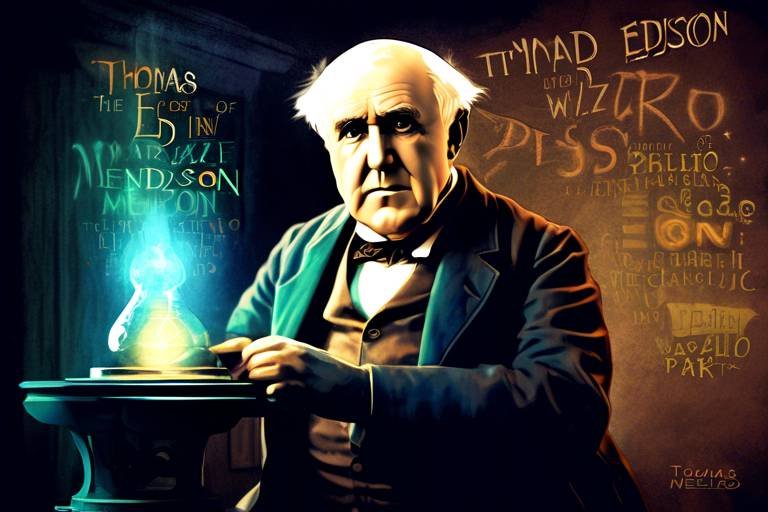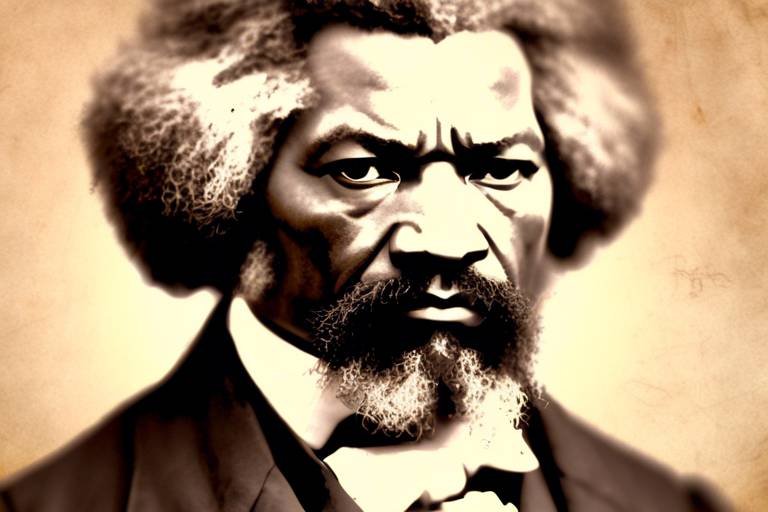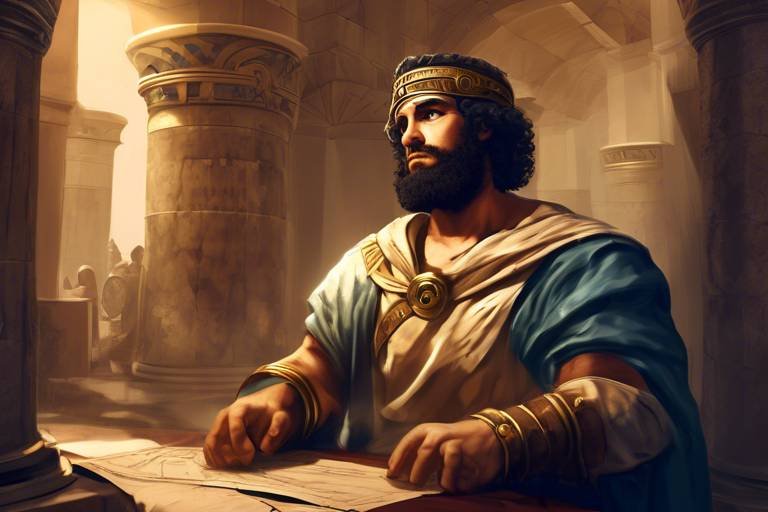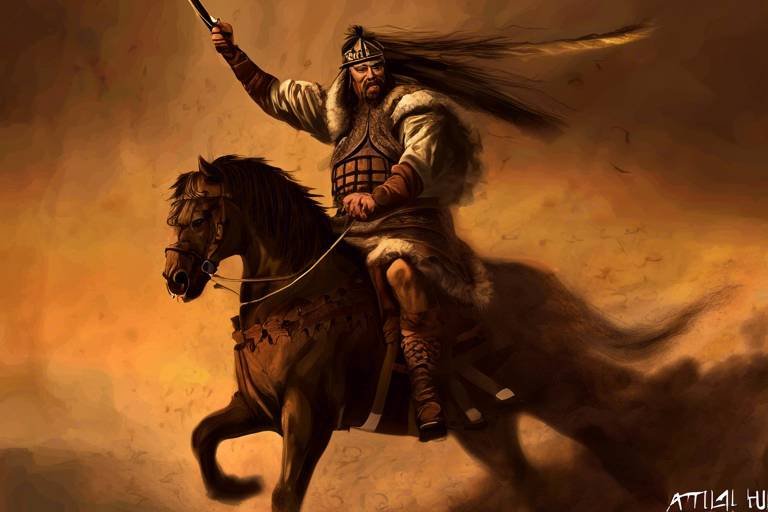Wilhelm I: The German Emperor
Wilhelm I, the first German Emperor and King of Prussia, was a pivotal figure in the 19th century, reshaping the political landscape of Europe through his leadership and vision. Born in 1797, Wilhelm I's early life and upbringing laid the foundation for his future role as a unifier and statesman. His family background, rooted in Prussian royalty, instilled in him a sense of duty and responsibility towards his people.
Wilhelm I's journey towards unification began with his ascent to the throne in 1861, where he worked tirelessly to consolidate the fragmented German states under Prussian leadership. His collaboration with the brilliant strategist Otto von Bismarck proved to be instrumental in achieving this ambitious goal. Together, they navigated the complex web of European politics, forging alliances and waging wars to bring about a unified German Empire.
One of the defining moments of Wilhelm I's reign was the Franco-Prussian War of 1870-1871, which culminated in the defeat of France and the proclamation of the German Empire at the Palace of Versailles. This victory solidified Wilhelm I's position as the Emperor of a united Germany, marking a new era of power and influence for the nation.
Wilhelm I's legacy extended beyond military conquests, encompassing his efforts in modernizing the Prussian army and implementing social reforms to improve the lives of his subjects. His commitment to industrialization propelled Germany into a period of economic growth and innovation, laying the groundwork for its future prosperity.
In his later years, Wilhelm I's reign was marked by stability and progress, setting the stage for the rise of his successors and the continued development of Germany as a formidable European power. His legacy as the German Emperor endures as a testament to his unwavering dedication to the unification and advancement of his country.

Early Life and Background
Exploring the life and reign of Wilhelm I, the first German Emperor and King of Prussia, and his impact on the unification of Germany and European politics in the 19th century.
An overview of Wilhelm I's upbringing, family background, and early influences that shaped his character and leadership style.
Wilhelm I, born on March 22, 1797, in Berlin, came from a noble lineage with a strong military tradition. His father, Frederick William III, was the King of Prussia, and his mother, Queen Louise, instilled in him a sense of duty and discipline from a young age. Growing up in the tumultuous times of the Napoleonic Wars, Wilhelm witnessed the struggles of his country and the need for strong leadership.
His military education at the renowned Prussian Military Academy in Berlin honed his strategic thinking and instilled in him a deep respect for the army. Wilhelm's early experiences in the military shaped his character, emphasizing the importance of discipline, honor, and loyalty.
As a young prince, Wilhelm was exposed to the political intrigues of the European courts, which broadened his perspective and diplomatic skills. His interactions with influential figures of the time, such as Metternich and Talleyrand, laid the foundation for his future role in shaping European politics.
Wilhelm's early years were marked by a blend of tradition and modernity, shaping him into a leader who valued both the Prussian heritage and the need for progress and reform. His background as a prince of Prussia provided him with a deep understanding of his people's aspirations and the challenges facing the nation.
Overall, Wilhelm I's early life and background laid the groundwork for his future role as a unifier and visionary leader, setting the stage for his transformative impact on Germany and European history.

Role in the Unification of Germany
Exploring the life and reign of Wilhelm I, the first German Emperor and King of Prussia, and his impact on the unification of Germany and European politics in the 19th century.
Wilhelm I played a crucial role in the unification of Germany, a monumental achievement that reshaped the political landscape of Europe. Through a combination of diplomatic finesse, military prowess, and strategic alliances, Wilhelm I spearheaded the consolidation of various German states into a unified nation under the German Empire in 1871.
His vision and determination to unify Germany were instrumental in overcoming longstanding divisions and rivalries among the German states. Wilhelm I's leadership during this transformative period laid the foundation for a strong and cohesive German state that would emerge as a dominant force in European affairs.
Collaborating closely with his trusted Chancellor, Otto von Bismarck, Wilhelm I navigated the complex web of European power dynamics to secure alliances and achieve strategic victories that ultimately led to the unification of Germany. Their partnership was characterized by a shared commitment to realizing the long-held dream of a united German nation.
Furthermore, Wilhelm I's unwavering resolve and strategic acumen were evident in his approach to military campaigns and negotiations, which culminated in the defeat of France in the Franco-Prussian War. This decisive victory not only solidified German unification but also established Germany as a formidable military power on the continent.
Overall, Wilhelm I's role in the unification of Germany exemplifies his legacy as a visionary leader who navigated turbulent times with skill and determination, leaving a lasting impact on the course of European history.

Relationship with Otto von Bismarck
Wilhelm I's relationship with Otto von Bismarck was a crucial element in the unification of Germany. Bismarck, known as the "Iron Chancellor," was the mastermind behind many of the diplomatic and military strategies that led to the consolidation of German states into a unified empire. Wilhelm I and Bismarck shared a close and effective partnership, with the Emperor providing the political legitimacy and Bismarck executing the intricate plans.
The collaboration between Wilhelm I and Bismarck was marked by mutual respect and trust. Bismarck's astute political maneuvers and Wilhelm I's unwavering support created a formidable duo that navigated the complex landscape of European power dynamics with finesse. Their shared vision of a unified Germany drove them to overcome obstacles and opposition, leading to the eventual realization of this ambitious goal.
While Wilhelm I provided the symbolic leadership as the Emperor, Bismarck operated as the architect of statecraft, crafting alliances, and orchestrating events to further the unification process. Their complementary roles and shared objectives laid the foundation for the successful integration of diverse German territories into a cohesive nation-state under Prussian dominance.
Together, Wilhelm I and Bismarck steered Germany towards unity through a combination of diplomatic negotiations, strategic military campaigns, and adept political maneuvering. Their partnership exemplified the synergy between royal authority and pragmatic governance, resulting in a unified Germany that emerged as a formidable force in European politics and reshaped the continent's geopolitical landscape.

Military Leadership and Reforms
Exploring the life and reign of Wilhelm I, the first German Emperor and King of Prussia, and his impact on the unification of Germany and European politics in the 19th century.
Wilhelm I's military leadership was instrumental in shaping Germany's rise as a major European power. His modernization reforms and expansion of the Prussian army played a crucial role in transforming Germany into a formidable force on the continent.
Under Wilhelm I's leadership, the Prussian army underwent significant reforms, including the adoption of new military technologies and tactics. These reforms not only enhanced the effectiveness of the army but also laid the foundation for Germany's military prowess in the years to come.
Furthermore, Wilhelm I's emphasis on military training and discipline helped instill a sense of professionalism and dedication among the troops. The army's organizational structure was also revamped, streamlining command and control mechanisms for greater efficiency on the battlefield.
One of Wilhelm I's notable achievements was his successful management of the Franco-Prussian War of 1870-1871. His strategic acumen and decisive leadership were key factors in the Prussian victory over France, leading to the establishment of the German Empire.
In addition to his military accomplishments, Wilhelm I's reforms extended beyond the battlefield. He recognized the importance of industrialization in strengthening Germany's military capabilities and spearheaded initiatives to promote industrial development in the country.
Overall, Wilhelm I's military leadership and reforms not only shaped the course of German history but also left a lasting legacy in the annals of European military strategy and governance.
Stay tuned for answers to commonly asked questions about Wilhelm I, his reign, and his impact on Germany and European politics.

Franco-Prussian War
The Franco-Prussian War of 1870-1871 marked a significant turning point in European history, with Wilhelm I playing a central role in the conflict that ultimately led to the unification of Germany. The war was a culmination of tensions between France and Prussia, exacerbated by the Ems Dispatch incident which ignited hostilities. Under Wilhelm I's leadership, Prussian forces, along with their German allies, achieved a series of decisive victories over the French army, culminating in the capture of Napoleon III at the Battle of Sedan.
One of the most iconic moments of the war was the proclamation of Wilhelm I as the German Emperor in the Hall of Mirrors at the Palace of Versailles, symbolizing the defeat of France and the birth of a unified German Empire. The war also resulted in the annexation of Alsace-Lorraine by Germany, a move that fueled resentment in France and set the stage for future conflicts.
The aftermath of the Franco-Prussian War saw the formal establishment of the German Empire, with Wilhelm I assuming the title of Emperor. This newfound unity and strength reshaped the balance of power in Europe, solidifying Germany's position as a formidable force on the continent. The war not only cemented Wilhelm I's legacy as the architect of German unification but also set the stage for a new era of European politics and rivalries.

Domestic Policies and Governance
Wilhelm I's domestic policies and governance were characterized by a delicate balance of power between the monarchy, parliament, and the emerging German states. His approach aimed to maintain stability and unity within the newly formed German Empire while addressing the diverse needs of the various regions and populations under his rule. Wilhelm I recognized the importance of fostering a sense of national identity among the German people, promoting cultural unity, and strengthening the authority of the central government.
One of Wilhelm I's key initiatives was the implementation of social reforms aimed at improving the living and working conditions of the German population. He supported policies that sought to address issues such as poverty, education, and healthcare, laying the foundation for a more equitable society. Additionally, Wilhelm I promoted industrialization and modernization efforts, recognizing the importance of economic development in securing Germany's position as a leading European power.
In terms of governance, Wilhelm I sought to strike a balance between the traditional authority of the monarchy and the growing influence of parliamentary institutions. He worked to establish a functional system of government that allowed for representation and participation while maintaining the overall stability of the Empire. Wilhelm I's leadership style emphasized pragmatism and a sense of duty to the German people, guiding his decisions in both domestic and foreign affairs.

Social Reforms and Industrialization
Wilhelm I's era was marked by significant progress in social reforms and industrialization, transforming Germany into a modern powerhouse. Under his reign, initiatives were implemented to improve the living and working conditions of the people, aiming to create a more equitable society. Social reforms encompassed areas such as healthcare, education, and labor rights, laying the foundation for a more inclusive and fair society. Wilhelm I also played a crucial role in promoting industrialization, fostering economic growth, and technological advancements that propelled Germany into the industrial age.

Late Reign and Legacy
Exploring the life and reign of Wilhelm I, the first German Emperor and King of Prussia, and his impact on the unification of Germany and European politics in the 19th century.
As Wilhelm I entered the later years of his reign as Emperor, his legacy continued to resonate throughout Germany and beyond. His steadfast leadership and vision had already solidified his place in history, but it was during this period that his influence truly stood the test of time.
Wilhelm I's late reign was marked by a sense of stability and progress, as the foundations he had laid for the German Empire began to bear fruit. His commitment to modernization and industrialization had transformed Germany into a formidable industrial powerhouse, setting the stage for its future growth and prosperity.
Moreover, Wilhelm I's diplomatic finesse and strategic alliances had secured Germany's position on the European stage, earning the respect of other major powers. His ability to navigate complex political landscapes with a blend of pragmatism and foresight had elevated Germany to a position of influence and prominence.
One of the key aspects of Wilhelm I's legacy was his role in shaping modern Germany's constitutional framework. His efforts to balance power between the monarchy, parliament, and the emerging German states laid the groundwork for a stable and functional governance system that would endure for generations to come.
Furthermore, Wilhelm I's commitment to social reforms and welfare initiatives had a lasting impact on German society, fostering a sense of unity and progress among the populace. His policies aimed at improving the living and working conditions of the people contributed to the overall well-being of the nation.
As Wilhelm I's reign drew to a close, his legacy as the architect of modern Germany was firmly established. His influence extended beyond his lifetime, shaping the course of European history and leaving an indelible mark on subsequent rulers and generations to come.
Frequently Asked Questions
- Who was Wilhelm I?
Wilhelm I, also known as Wilhelm Friedrich Ludwig, was the first German Emperor and King of Prussia. He played a significant role in the unification of Germany in the 19th century.
- What was Wilhelm I's relationship with Otto von Bismarck?
Wilhelm I had a close partnership with Otto von Bismarck, his Chancellor, in achieving the unification of Germany. Together, they worked on diplomatic strategies and military actions that led to the formation of the German Empire.
- What impact did Wilhelm I have on European politics?
Wilhelm I's military leadership, modernization reforms, and role in the Franco-Prussian War significantly impacted European politics. His efforts contributed to Germany's rise as a major power and reshaped the balance of power in Europe.
- How did Wilhelm I handle domestic policies?
Wilhelm I focused on balancing power between the monarchy, parliament, and the German states through his domestic policies. He also implemented social reforms and promoted industrialization, transforming Germany into an industrial powerhouse.
- What is Wilhelm I's legacy?
Wilhelm I's legacy includes his influence on modern Germany, the establishment of the German Empire, and his impact on subsequent rulers. His reign marked a significant period in European history, shaping the course of politics and governance.



















